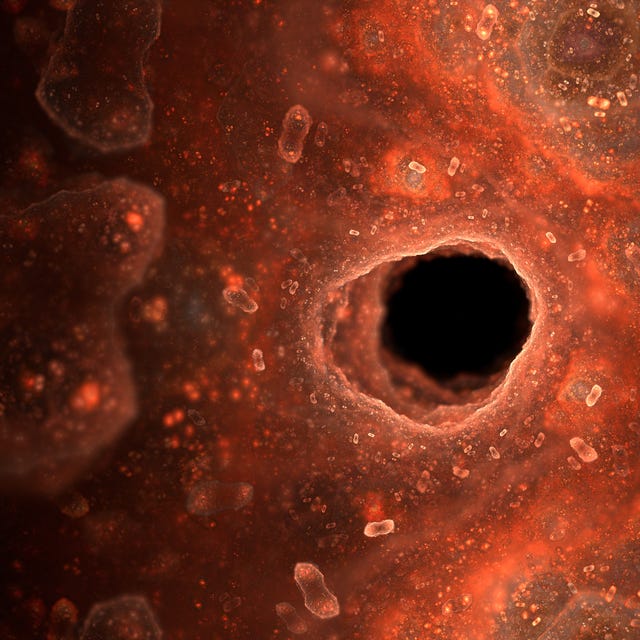This strange microscopic structure may whisper ancient evolutionary secrets.

Stanford University researchers have discovered virus-like ‘lifeforms’ that exist inside human mouths and guts.
Smaller than a virus and not considered standard life, the genetic material can still transfer information that can be read by a cell.
We had no idea these things existed, and we certainly aren’t certain yet what they do.
We’re not sure if it’s exciting or not that scientists just discovered new ‘lifeforms’ inside of our bodies. Tiny bits of RNA, smaller than a virus, colonize bacteria inside our mouths and guts and have the power to transfer information that can be read by a cell.
Dubbed ‘wildly weird’ by the team of Stanford scientists writing about the find in Nature, the discovery now has a name: obelisks. And we… don’t really know their end goal.
“It’s insane,” said Mark Peifer, a cell and developmental biologist at the University of North Carolina at Chapel Hill, according to Science. “The more we look, the more crazy things we see.”
Named obelisks because of their rod-shaped structures, they are even smaller than viruses, but they can still transmit instructions to cells. What they’re saying, however, we just don’t know. The microscopic entities, according to an explanation written in The Conversation by University of Bath microbial evolution professor Ed Feil, calls the obelisks “circular bits of genetic material that contain one or two genes and self-organize into a rod-like shape.”
They are, potentially, itsy-bitsy ‘lifeforms.’ The preprint paper from Stanford calls them “viroid-like”—a viroid is one step down from a virus. While a virus needs a host to allow it to replicate, that hasn’t slowed them down. We’ve lost count of just how many viruses this world has to offer because they are so plentiful.
But a viroid is even more simplistic—a scrap of genetic RNA that cannot make proteins, but can regroup, and has been known to plague flowering plants.
“The newly discovered biological entity falls somewhere between viruses and viroids,” Feil wrote. He added that, like viroids, the obelisks have a circular, single-stranded RNA genome and no protein coat. But, like viruses, their genomes contain genes that are predicted to code for proteins.
And it isn’t like the Stanford researchers found just one of these things—they located nearly 30,000 distinct types of obelisk. That’s just for starters. They were located in every demographic corner of the world, and were typically found in the mouth (but also in the gut).
Now the task becomes sussing out if these obelisks are friend or foe. Scientists want to learn about the host cells that they needs to replicate, how bacteria and fungi play roles in their function, and what their true purpose really is.





